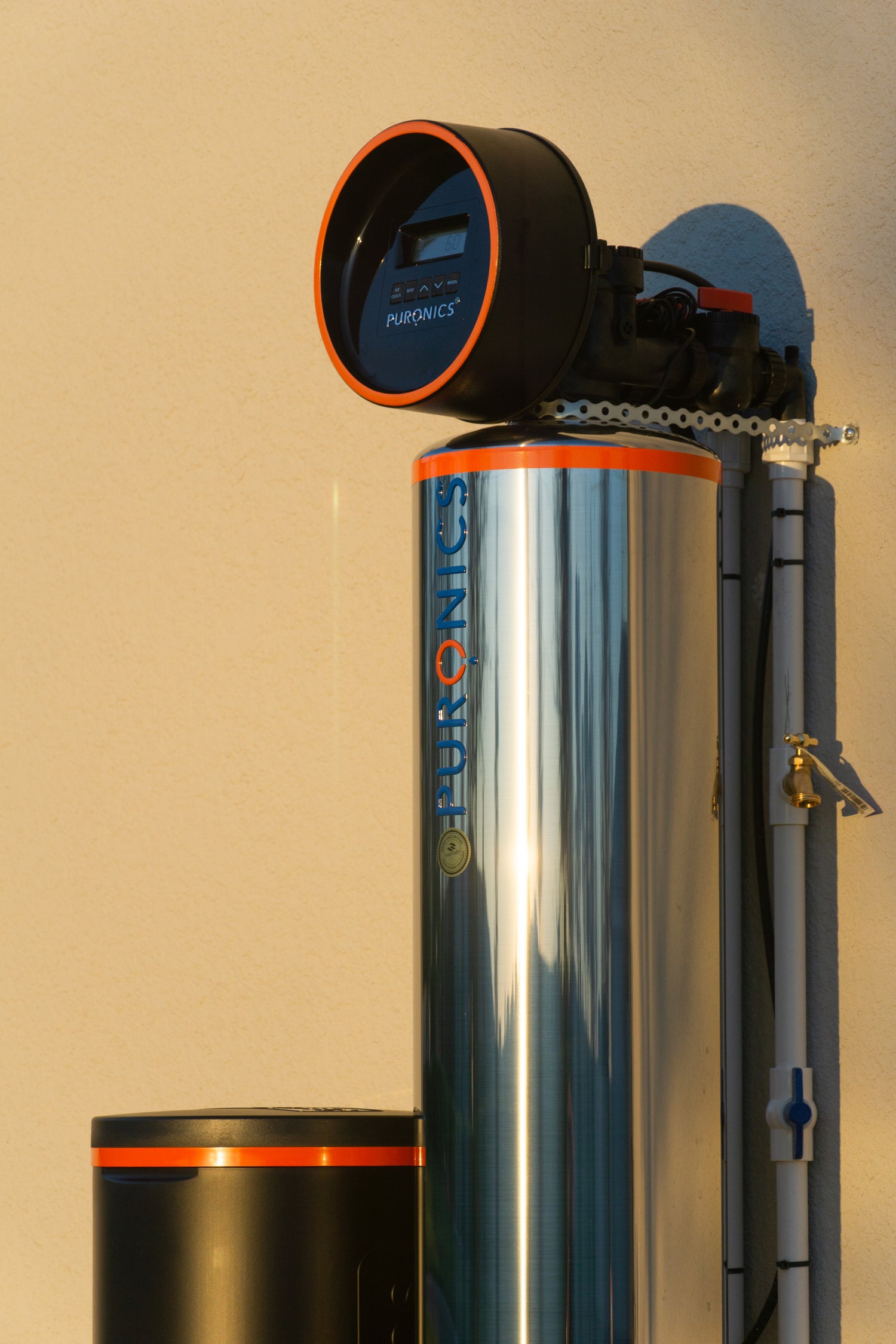
Water Softener Systems
Puronics® water softener systems provide your home with clean and safe water solutions. Our whole-house water softeners address common water problems such as hard water, water staining, chlorine taste and odor, dry skin, and dry hair.
WHAT IS A WATER SOFTENER?
Water softening is a technique that serves the removal of the ions that cause the water to be hard, in most cases calcium and magnesium ions. Iron ions may also be removed during the softening process. The best way to soften water is to use a water softener unit that connects directly to the main water supply of the house.
Water Softener FAQs
WHY DOES WATER NEED SOFTENING?
When water contains a significant amount of calcium and magnesium, it is called hard water. Hard water is known to clog pipes and hot water tanks and complicates soap and detergent dissolving in water. A water softener is thus recommended whenever hard water is an issue.
HOW DOES A WATER SOFTENER WORK?
A water softener is composed of a mineral tank and a backflush tank. It collects hardness minerals within its conditioning tank and from time to time flushes them away to drain. Ion exchangers (usually resin beads in today’s water softeners) are used for water softening. When water runs through an ion exchanger, the exchanger replaces the calcium and magnesium ions in the water with other ions such as sodium or potassium.The result of ouradvanced water softener technologyis healthier, smoother water for you and your family, while still maintaining an efficientflow rate.
WHAT ARE THE BENEFITS OF USING A WATER SOFTENER?
So, is a water softener worth it? Here are just a few of the benefits of using a water softener system in your home:
- Clearly refreshing® water
- Eliminates objectionable tastes & odors
- Water-using appliances last longer
- Dishes are cleaner
- Skin and hair are soft and silky
- Food & beverages taste better
- Save time on house cleaning
- Save money on soap, detergents and grooming products
WHY REMOVE CHLORAMINE?
Chloramine is a combination of ammonia and chlorine that is commonly used to disinfect municipal water supplies. In high levels, it can be very corrosive to lead water lines and copper piping. Chloramine could also have side effects for people and fish.
HOW DOES A WATER SOFTENER FIX IT?
A water softener collects hardness minerals within its conditioning tank and from time to time flushes them away to drain. Ion exchangers like resin beads are often used for water softening. When an ion exchanger is applied for water softening, it replaces the calcium and magnesium ions in the water with other ions such as sodium or potassium.
BENEFITS OF USING A CHLOROSTATIC® WATER SOFTENER?
A water softener collects hardness minerals within its conditioning tank and from time to time flushes them away to drain. Ion exchangers like resin beads are often used for water softening. When an ion exchanger is applied for water softening, it replaces the calcium and magnesium ions in the water with other ions such as sodium or potassium.
